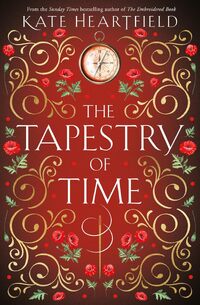 THE TAPESTRY OF TIME |
|
 We miss Stephen!
Some secrets go to the grave. Others can\'t be buried.
Shane Skully #9 To find the truth about one man’s death LAPD Detective Shane Scully was raised in an orphanage called Huntington House. There, he and a small group of kids were devoted to the home’s director Walter “Pop” Dix. An avid surfer with a larger-than-life spirit, Pop was the father Shane never had. And now, thirty years later, he is gone… The pallbearers will put their lives on the line… Pop is found dead, the victim of an apparent self-inflicted shotgun blast. He left a note naming six Huntington grads as his pallbearers. Shane is one of the chosen—but he doesn’t believe Pop’s death was a suicide. Now, along with the others, Shane embarks on a dangerous mission to unearth Pop’s real killer. But the group discovers an unexpected adversary whose power and influence far exceed anything they could have imagined—violent, dangerous men who are determined to keep the truth about Pop’s death under wraps…no matter who gets in their way. Excerpt CHAPTER 1 IN 1976 AMERICA WAS JUST coming out of a protracted depression called the Vietnam War, but back then I was still deep in the middle of mine. I was twelve years old, and, boy, was I pissed. It was early in May on that particular spring morning and I was huddled with some other children on Seal Beach around 9th Street. We were staring out through a predawn mist at the gray Pacific Ocean while consulting Walter Dix’s old surf watch to time the AWP—which is what Walt called the Average Wave Period between the incoming swells. Walt called swells the steeps. The beach we were on was about fifteen miles from the Huntington House Group Home, which was in a run-down neighborhood in Harbor City, a few minutes southeast of Carson. There were four of us gathered around Walt, all wearing beavertail wet suits with the sixties-style long flap that wrapped around under your crotch and left your legs uncovered. We were his lifers. The yo-yos. The kids who kept getting thrown back. All of us knew we would probably never get another chance at a foster family or adoption because we were too ugly or too flawed or we had lousy county packages, having already been placed too many times and then returned with bad write-ups. But there were other reasons we didn’t make it. We were an angry group. I held the Huntington House catch-and-release record, having just been sent back for the fifth time. My last foster family had called me in-corrigible, unmanageable, and a liar. Probably all pretty accurate classifications. The four of us had been specifically chosen for different reasons by Walter “Pop” Dix for that morning’s sunrise surf patrol. Of course we had all desperately wanted to be picked, but it wasn’t lost on any of us that we’d earned the privilege because of a variety of recent setbacks. Pop understood that even though we’d failed, it didn’t mean we were failures. He also understood our anger, even if nobody else did. Pop was the executive director of Huntington House and was the closest thing to a father I’d ever known. “Okay, cowabungas. Big rhinos out der. We gonna bus’ ’em out big time,” he said, glancing up from the watch to the incoming sets, speaking in that strange-sounding Hawaiian pidgin that he sometimes used when we were surfing. “We pack large dis morning. Catch us one big homaliah wave, stay out of de tumbler and it be all tits and gravy, bruddah.” He grinned, kneeling in the sand wearing his Katin trunks, displaying the surfer knots on the tops of his feet and knees—little calcium deposits caused by a life-time of paddling to catch up to what Pop called the wall of glass. Pop was a tall, stringy, blue-eyed guy with long blond hair just beginning to streak with gray. He was about forty then, but he seemed much younger. There was an Igloo cooler with juice and rolls in the sand before us, packed by Walter’s wife, Elizabeth, for after surfing. We’d take our clean-up set at around seven thirty, come in and shower by the lifeguard station, eat, and change clothes in the van. Then we would pack up and Walt would drop us at school by eight thirty. Pop had been born on the North Shore of Hawaii, which he said made him “kamaaina to da max.” His parents had taught school there and he’d ended up in L.A. after the army. That was pretty much all I knew about him. I was too caught up with my own problems to worry about much else. Because he’d been raised on the North Shore and taught to surf by the old-timers there, Pop was a throw-back surfer, what the Hawaiians called a logger. His stick was a nine-foot-long board with no fins and a square tail—very old school. On the nose, he had painted his own crescent symbol, an inch-high breaking curl with the words “Tap the Source” in script underneath. Pop said the source was that place in the center of the ocean where Kahuna, the god of the waves, made “da big poundahs”—double overhead haymakers with sphincter factor. Other than a couple of Hawaiians and one or two Aussies, Pop was one of the few surfers left who rode a cigar-box surfboard, a 1930s Catalina Hollow made by Tom Blake. Once it had water inside from too many rides, it got heavy in the nose and was a bitch to stay up on. The rest of us had new polyurethane shorties with a dolphin-fin skeg for speed. The boards and wet suits belonged to the Huntington House Group Home and were only used for special occasions like this. We were sad children whose dark records were clinically defined in the terse cold files kept by Child Protective Ser vices. But our nicknames were much crueler than our histories because we bestowed them on each other. Nine-year-old Theresa Rodriguez knelt beside me, holding her short board. She had been set on fire by her mother shortly after birth but had miraculously survived. Terry was damaged goods, with an ugly, scarred face that looked like melted wax. Everyone knew Theresa was a lifer from the time County Welfare had first put her in Huntington House at the age of five. She was chosen for this morning’s field trip because she had no friends and never got much of anything, except from Pop. We called her Scary Terry. Also kneeling in the sand that morning was Leroy Corlet. Black, age eleven. Leroy’s dad was in prison, his mother was dead of a heroin overdose. He had been sexually molested by the uncle he’d been sent to live with until a neighbor called Child Protective Ser vices and they took him away. We called him Boy Toy behind his back, but never to his face because Leroy wasn’t right in the head anymore. He was a violent nutcase who held grudges, and if you pissed him off, he’d sneak into your room in the middle of the night while you slept and beat you in the face with his shoe. He couldn’t stand to be touched. Pop had picked him that morning because he had just failed a special evaluation test at elementary school and was being held back for the second time in four years. He’d been sulking in his room for the last two days. No foster family wanted him either. Next to Leroy was fifteen-year-old Khan Kashadarian. Half-Armenian, half-Arab or Lebanese. He’d been abandoned at age ten and was living in an alley in West Hollywood when he was picked up and shoved into the welfare system. Khan was fat, and a bully. We had given him two nicknames: Sand Nigger and Five Finger Khan, because he stole anything you didn’t keep locked up. I didn’t know why Pop picked him to be with us. As far as I was concerned, we’d have all been better off if he was dead. Even though he was three years older and a hundred pounds heavier, I’d had six or seven violent fights with Khan. I lost them all. I was small back then, but I didn’t take any shit. I was willing to step off with anybody at the slightest hint of insult. I got along with no one and had convinced myself that my five ex– foster families were a bunch of welfare crooks who were milking the system. “No floatwalling,” Pop said, his blue eyes twinkling. Floatwalling was paddling out beyond the surf but never going for a wave, not to be confused with backwalling, which was acceptable behavior because you were treading water, waiting for the big one. Then the sun peeked above the horizon, the sign that it was time for us to paddle out. “Let’s go rhino chasing, bruddahs!” Pop said. We picked up our boards and started down toward the early-morning break. I was fuming inside. I couldn’t believe nobody wanted me, even though I insisted I didn’t want or need anybody. Before we got to the water, Pop put out a hand and turned me toward him, as the others moved ahead. He lowered his voice and dropped the Hawaiian pidgin. “Get your chin up, guy. There’s a place for you, Shane,” he said softly. “Sometimes we have to wait to find out where we belong. Be patient.” I nodded, but said nothing. “Until you get picked again, you’ve always got a place with me.” Then he flashed his big, warm grin and switched back to pidgin, trying to get me to smile. “I always want you, bruddah. What’s a matta you? Your face go all jam up. You no laugh no more, haole boy?” I glanced down at the sand, shuffled my feet. But I didn’t smile. I was too miserable. “Come on then.” Pop put a hand on my shoulder and walked with me to the water. I was Shane Scully, a name picked for me by strangers. No mom, no dad. No chance. I had nobody, but nobody messed with me either. My nickname around the group home was Duncan because I was the ultimate yo-yo. All any of us had was Pop Dix. He was the only one who cared, the only one who ever noticed what we were going through and tried to make it better. And yet we were all so self-involved and angry that, to the best of my knowledge, none of us had ever bothered to say thank you. Excerpted from The Pallbearers by Stephen J. Cannell. Copyright © 2010 by Stephen J. Cannell. Published in 2010 by St. Martin's Paperbacks. All rights reserved. This work is protected under copyright laws and reproduction is strictly prohibited. Permission to reproduce the material in any manner or medium must be secured from the Publisher. 
Our Past Week of Fresh Picks
A marriage is between two people.And their millions of followers.‘Will keep you turning the pages well into the night’ Catherine CooperMadison Read More »
Don\'t miss out on the stunning DELUXE LIMITED EDITION while supplies last. This breathtaking collectible is only available on a limited first print run Read More »
“Southern bestselling sensation” (Katie Couric Media) Kristy Woodson Harvey returns with a delightfully moving new novel about a mother-daughter duo learning to Read More »
INSTANT NEW YORK TIMES BESTSELLERA Most Anticipated Book of 2025: Goodreads • USA TODAY • Marie Claire &bull Read More »
She\'s right. It can never happen again. She won\'t let it.Ten years have passed, and Ren Taylor is back at square one Read More »
The New York Times and #1 internationally bestselling Department Q series comes to a thrilling conclusion when the team must turn inward Read More »
From Jess Kidd, the bestselling author of Things in Jars who “is so good it isn’t fair” (Erika Swyler Read More »
Two sisters living on Martha\'s Vineyard during World War II find hope in the power of storytelling when they start a wartime book club Read More » |
|
| |||
|
||||

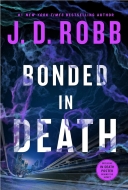



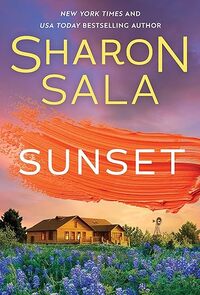
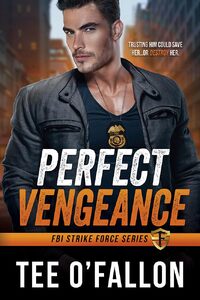
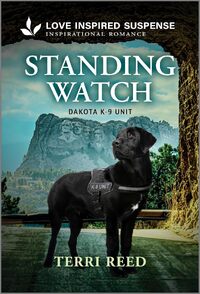
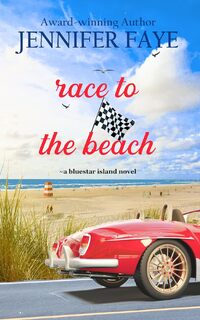
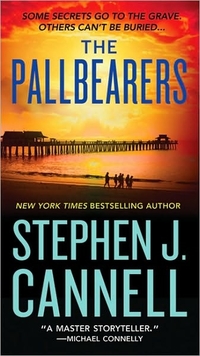

 Be careful about what you wish for
Be careful about what you wish for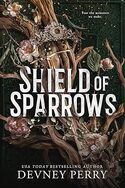

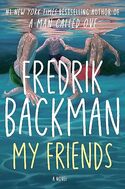
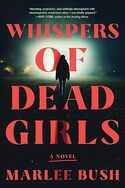
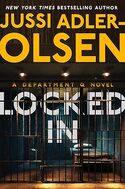
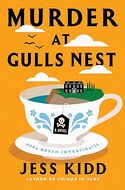
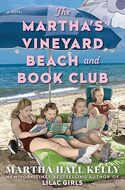
 © 2003-2025
© 2003-2025